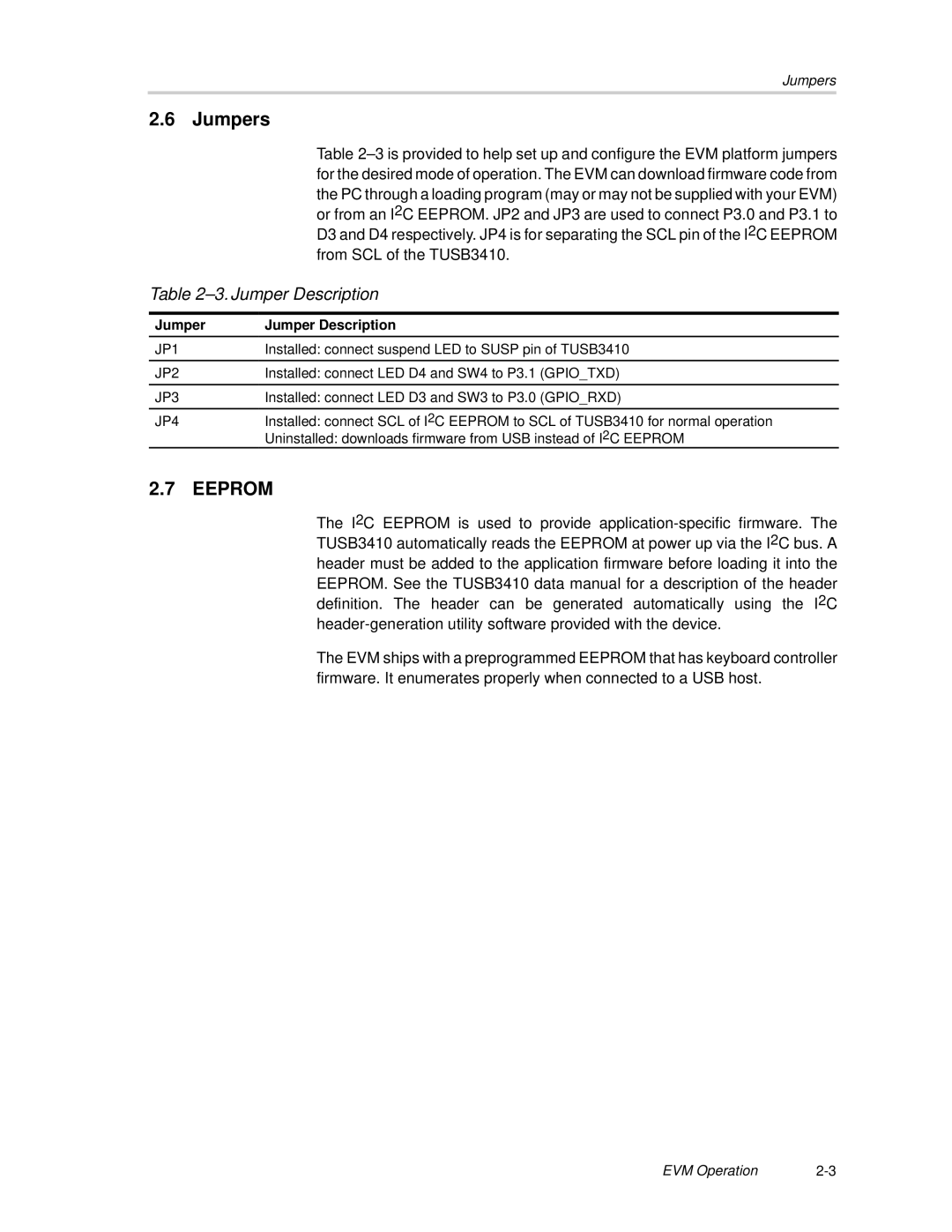
Jumpers
2.6 Jumpers
Table 2–3 is provided to help set up and configure the EVM platform jumpers for the desired mode of operation. The EVM can download firmware code from the PC through a loading program (may or may not be supplied with your EVM) or from an I2C EEPROM. JP2 and JP3 are used to connect P3.0 and P3.1 to D3 and D4 respectively. JP4 is for separating the SCL pin of the I2C EEPROM from SCL of the TUSB3410.
Table 2–3. Jumper Description
Jumper | Jumper Description | |
JP1 | Installed: connect suspend LED to SUSP pin of TUSB3410 |
| | |
JP2 | Installed: connect LED D4 and SW4 to P3.1 | (GPIO_TXD) |
| | |
JP3 | Installed: connect LED D3 and SW3 to P3.0 | (GPIO_RXD) |
| |
JP4 | Installed: connect SCL of I2C EEPROM to SCL of TUSB3410 for normal operation |
| Uninstalled: downloads firmware from USB instead of I2C EEPROM |
2.7 EEPROM
The I2C EEPROM is used to provide application-specific firmware. The TUSB3410 automatically reads the EEPROM at power up via the I2C bus. A header must be added to the application firmware before loading it into the EEPROM. See the TUSB3410 data manual for a description of the header definition. The header can be generated automatically using the I2C header-generation utility software provided with the device.
The EVM ships with a preprogrammed EEPROM that has keyboard controller firmware. It enumerates properly when connected to a USB host.

